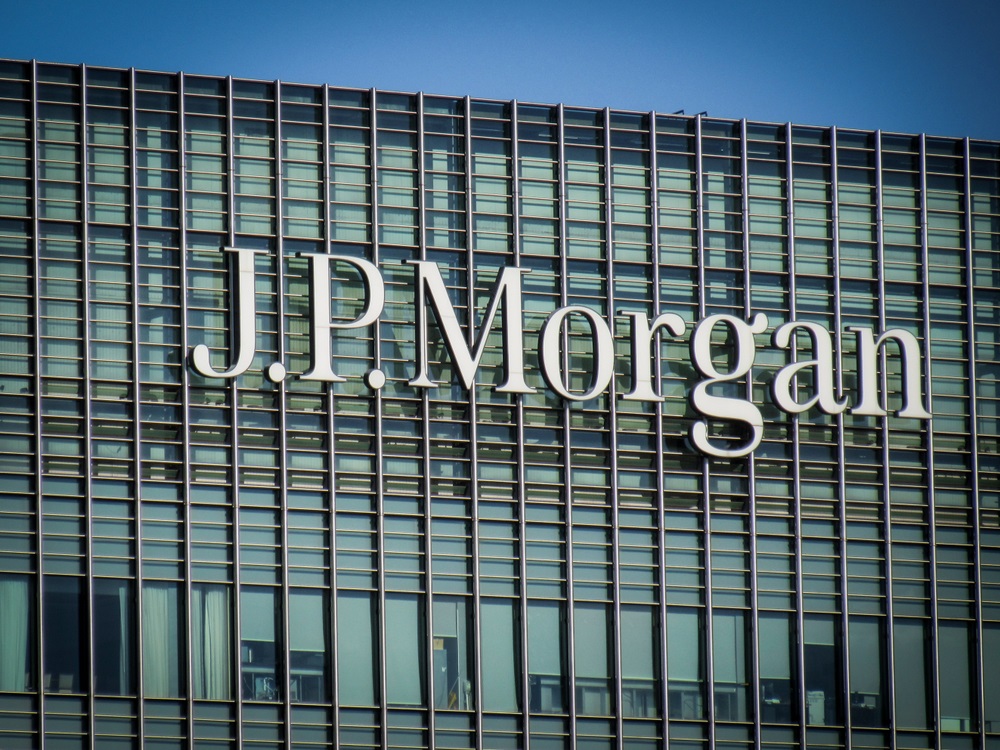JPMorgan Predicts This Index Could Outperform S&P 500
06.04.2025 15:33 2 min. read Alexander Stefanov
JPMorgan Chase predicts that the MSCI EAFE Index, which tracks major stocks from Europe, Australasia, and the Far East, could soon start outperforming the S&P 500 after years of lagging behind.
Analysts Andrew VanWazer and William M. Smith from the investment giant believe that a shift in market dynamics may be underway, marking the end of the S&P 500’s long-standing dominance.
For over 16 years, the S&P 500 has consistently outpaced the MSCI EAFE Index, delivering annual returns of 11.9% compared to just 3.6% for the international benchmark. However, JPMorgan now sees signs that this trend might reverse, especially in light of emerging challenges for the US market.
One of the key turning points, according to the bank’s strategists, was the recent announcement from China’s AI startup DeepSeek, which unveiled a model capable of rivaling top American AI platforms. This news immediately affected the US market’s relative valuation compared to the EAFE Index, dropping it from 55% to 49%, and further declining to 39% as of mid-March.
JPMorgan’s analysts also point to several factors that could further erode the S&P 500’s edge: economic uncertainties in the US, declining consumer confidence, inflation driven by tariffs introduced during the Trump administration, and the potential resolution of the Ukraine conflict. These elements, they argue, could pave the way for the EAFE Index to take the lead.
Looking ahead, JPMorgan’s long-term capital market assumptions suggest that EAFE stocks may outperform US stocks by 1.4% over the next 10 to 15 years, with projected returns of 8.1% compared to 6.7% for the S&P 500. While some investors have doubted this forecast, recent events highlighting tech sector volatility and trade risks have made the case for EAFE’s potential rise more compelling.
-
1
UK Regulators Unveil PISCES – A New Era for Private Share Trading
11.06.2025 15:00 2 min. read -
2
Trump Turns 79 With Billions in Crypto and a $45M Parade
14.06.2025 22:00 2 min. read -
3
Polygon Breaks from Decentralization as Sandeep Nailwal Assumes Full Control
11.06.2025 20:00 2 min. read -
4
KuCoin Plants Its Flag in Bangkok With a Licensed Thai Exchange
14.06.2025 13:00 1 min. read -
5
Nvidia CEO Urges UK to Invest in AI Infrastructure or Risk Falling Behind
10.06.2025 9:00 1 min. read
U.S. Bank Advises Clients to Drop These Cryptocurrencies
Anchorage Digital, a federally chartered crypto custody bank, is urging its institutional clients to move away from major stablecoins like USDC, Agora USD (AUSD), and Usual USD (USD0), recommending instead a shift to the Global Dollar (USDG) — a stablecoin issued by Paxos and backed by a consortium that includes Anchorage itself.
Vitalik Buterin Warns Digital ID Projects Could End Pseudonymity
Ethereum co-founder Vitalik Buterin has voiced concerns over the rise of zero-knowledge (ZK) digital identity projects, specifically warning that systems like World — formerly Worldcoin and backed by OpenAI’s Sam Altman — could undermine pseudonymity in the digital world.
What Are the Key Trends in European Consumer Payments for 2024?
A new report by the European Central Bank (ECB) reveals that digital payment methods continue to gain ground across the euro area, though cash remains a vital part of the consumer payment landscape — particularly for small-value transactions and person-to-person (P2P) payments.
History Shows War Panic Selling Hurts Crypto Traders
Geopolitical conflict rattles markets, but history shows panic selling crypto in response is usually the wrong move.
-
1
UK Regulators Unveil PISCES – A New Era for Private Share Trading
11.06.2025 15:00 2 min. read -
2
Trump Turns 79 With Billions in Crypto and a $45M Parade
14.06.2025 22:00 2 min. read -
3
Polygon Breaks from Decentralization as Sandeep Nailwal Assumes Full Control
11.06.2025 20:00 2 min. read -
4
KuCoin Plants Its Flag in Bangkok With a Licensed Thai Exchange
14.06.2025 13:00 1 min. read -
5
Nvidia CEO Urges UK to Invest in AI Infrastructure or Risk Falling Behind
10.06.2025 9:00 1 min. read


